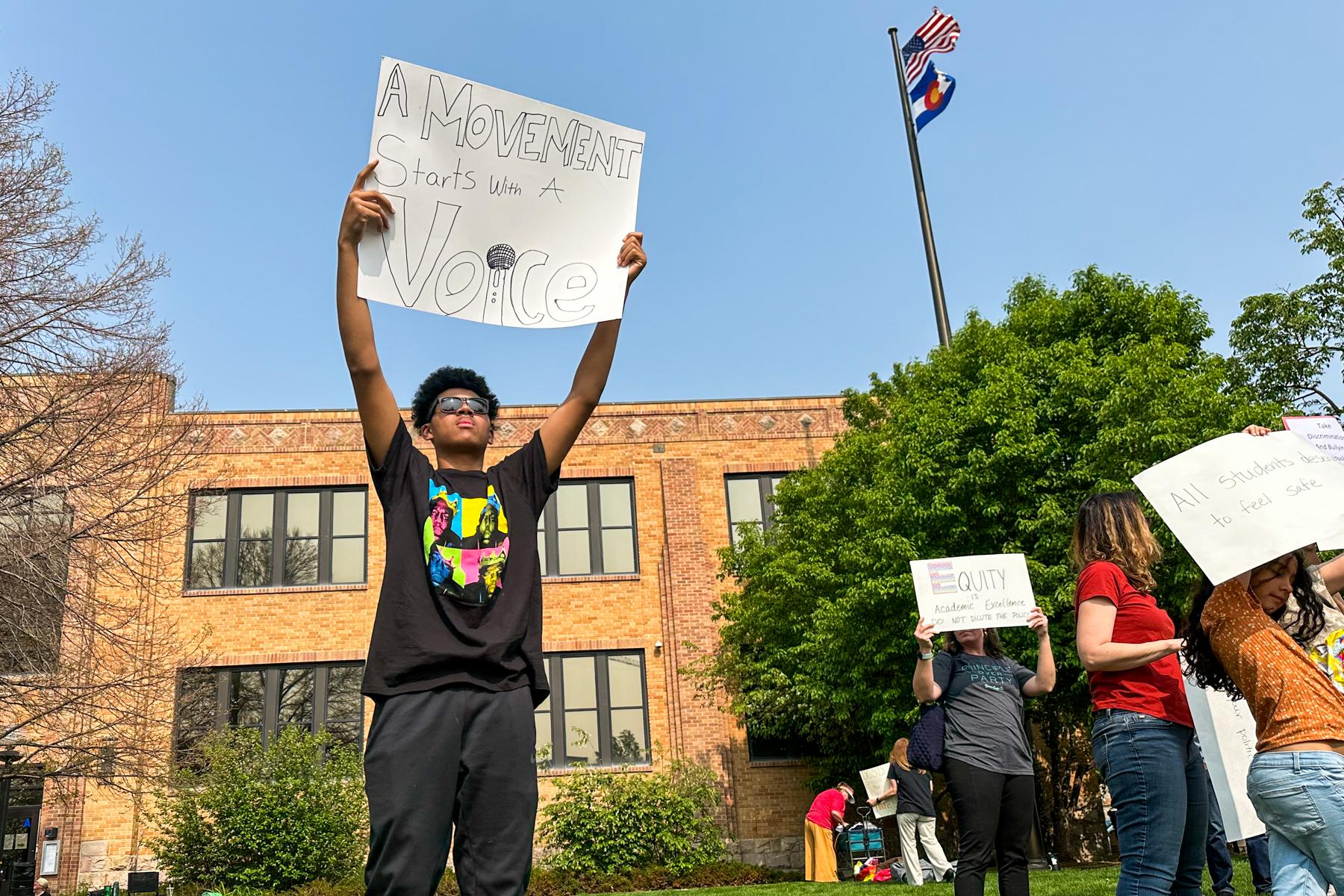
A U.S. district judge has denied a motion from the Douglas County School District to remove the principal of Castle Rock Middle School from a lawsuit alleging race-based discrimination. That means that the case will move forward on all three claims brought by the families of four Black and biracial students.
“We are happy the judge ruled that everyone who played a major role in the horrific racist harassment my children suffered can be held accountable,” said Lacey Ganzy, mother of Jeramiah Ganzy, then 14, who faced pervasive racism and bullying at the Douglas County school. “We look forward to this case moving along and to our ultimate day in court."
A year ago, the families filed a federal civil lawsuit against the district, alleging district and school administrators failed to take adequate measures to protect the students from severe and pervasive racism and bullying.
The suit is based on Title VI, part of the Civil Rights Act of 1964, which prohibits discrimination on the basis of race, color, and national origin in programs and activities receiving federal financial assistance.
There is a second equal protection claim in the suit, alleging that the racial hostility and harassment experienced by Ganzy and two other Black students at Castle Rock Middle School happened so often and in so many different forms that it deprived them of equal educational opportunities.
A group Snapchat used by more than 100 students targeted and bullied Black and biracial students with racially derogatory and offensive slurs. The students experienced verbal insults, racist jokes and threats of violence. Jeramiah Ganzy wrote a letter to the district describing the racism he’d experienced and asked for help to no avail.
After a lawsuit was filed in August, the district didn’t move to dismiss the first two claims but did try to dismiss a third claim against the Castle Rock Middle School Principal John Veit. That claim alleged he neglected or refused to stop further racial harassment that included a student white supremacy group; threats of violence; students circulating humiliating racist tropes, memes and images of Black students; and racial profiling by school staff.
In legal terms, the claim alleges that Veit failed to prevent a conspiracy to deprive students of equal protection. In other words, it alleges the principal knew of a “concerted effort by students to humiliate, terrorize, and alienate” Black and biracial students but failed to protect them, according to the ruling denying the motion to dismiss.
Veit had claimed “qualified immunity” from the suit, a doctrine that protects government officials from liability for civil damages. However, the doctrine doesn’t apply if constitutional rights are violated. Veit argued that the plaintiffs didn’t plausibly allege a conspiracy.
A court filing from the lawsuit’s filers alleges a student forwarded Veit an email about students’ racist conduct.
“After receiving the email, Mr. Veit acknowledged he knew students of color were experiencing such discrimination,” according to the motion.
Judge John Kane argued that the plaintiffs plausibly alleged a conspiracy — in that students engaged in coordinated efforts to engage in racial harassment. Plaintiffs provided detailed examples of threats, insults and racial slurs in a Snapchat group. Veit, the judge wrote, had knowledge of the conspiracy and failed to protect students.
“I find Mr. Veit’s motion to be groundless and consequently deny it,” the judge wrote.
Attorney Iris Halpern, who represents the families, said that the decision by the court sends the strong message that federal civil rights laws continue to have teeth.
“This order should serve as a warning to other school officials across the country: If you know about systemic racist bullying and harassment, and having the power to stop it, fail to do so, then you are in violation of our federal civil rights laws and can be held individually accountable,” she said. “Turning a blind eye or burying your head in the sand is not going to cut it.”
District officials said in a statement the ruling was a procedural one and it will continue to vigorously defend the allegations raised by the plaintiffs in this case.








